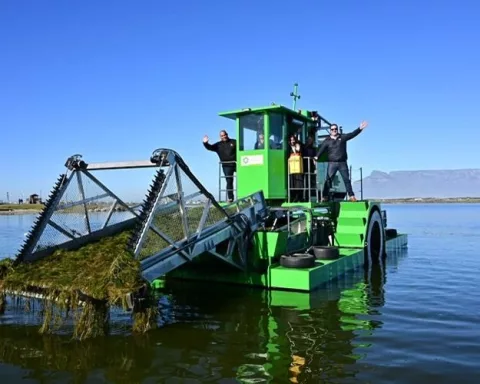President Cyril Ramaphosa has announced the outcomes of the XV BRICS Summit, which took place in Johannesburg, South Africa. The summit celebrated the partnership between Brazil, Russia, India, China, and South Africa, marking a significant milestone in their relationship. This was the first in-person gathering of the five leaders since the COVID-19 pandemic began.
Comprehensive Business Program
The summit featured a comprehensive business program aimed at promoting investment, collaboration, and opportunities within South Africa, Africa, and BRICS nations. Dilma Rousseff was appointed as the President of the New Development Bank, and she presented a clear vision for the bank’s role in infrastructure and sustainable development across Africa and the Global South.
Celebrating Achievements
The BRICS Summit also celebrated the 10th anniversary of the Business Council and welcomed its self-review and subsequent recommendations. The Women’s Business Alliance’s in-person meeting with leaders was also acknowledged, along with the participation of youth representatives.
Addressing Shared Global Challenges
The participants highlighted the importance of BRICS’ economic partnership in delivering practical benefits for their communities and addressing shared global challenges. They also reiterated their commitment to inclusive multilateralism and international law, as stated in the United Nations Charter.
Global Conflicts and Inequality
The summit expressed concerns about ongoing global conflicts and called for peaceful resolutions through dialogue and inclusive consultation. The leaders agreed that an unbalanced recovery from the COVID-19 pandemic is exacerbating inequality worldwide and urged financial institutions and international organizations to build a global consensus on economic policies.
Exploring Opportunities
BRICS leaders acknowledged the increasing importance of local currencies, alternative financial arrangements, and payment systems. They agreed to explore opportunities to improve stability, reliability, and fairness in the global financial architecture.
People-to-People Exchanges
The importance of people-to-people exchanges was emphasized, with progress made in media, culture, education, sports, arts, youth, civil society, and academic interactions.
Johannesburg II Declaration
The Johannesburg II Declaration was adopted, reflecting BRICS’ stance on global economic, financial, and political matters. The declaration showcases the shared values and common interests that drive the mutually beneficial cooperation between the member countries.
Guiding Principles
BRICS is a diverse group of nations with differing views but a shared vision for a better world. The leaders reached an agreement on the guiding principles, standards, criteria, and procedures for BRICS expansion. The first phase of expansion will include inviting Argentina, Egypt, Ethiopia, Iran, Saudi Arabia, and the United Arab Emirates as full members, effective from January 2024.
Partner-Country Model
The BRICS partner-country model was discussed, and foreign ministers were tasked to develop a list of potential partner countries to be reported at the next summit. Leaders from Africa and the Global South were also invited to engage in the BRICS-Africa Outreach and BRICS Plus Dialogue, promoting an inclusive discussion on issues affecting developing economies and identifying collective actions for a more equitable, inclusive, and representative world.
In conclusion, President Ramaphosa expressed gratitude to the leaders of Brazil, Russia, India, and China for their participation in the successful 15th BRICS Summit held in Johannesburg, South Africa. The summit marked a new chapter in the alliance’s efforts to create a fair, just, inclusive, and prosperous world.








